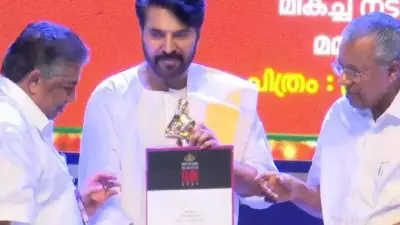
In a refreshingly honest take that's creating waves across the Indian film industry, acclaimed actress Priyamani has voiced strong opposition to the increasingly popular 'pan-India' label for movies. The talented performer, best known for her compelling role in the hit series The Family Man, believes this categorization unnecessarily complicates how audiences perceive and enjoy cinema.
The Problem with Labels
During a recent interview, Priyamani didn't hold back her thoughts about the industry's latest trend. "Why must we categorize everything as 'pan-India'?" she questioned, expressing concern that such labels create unnecessary pressure and expectations. The National Award-winning actress emphasized that films should simply be viewed as good cinema, regardless of their linguistic or regional origins.
Let Cinema Entertain, Not Confuse
Priyamani's perspective challenges the current industry narrative where every major release seems to carry the 'pan-India' tag. She passionately argued that audiences should stop overanalyzing films and instead focus on the fundamental purpose of cinema - entertainment. "When we watch Hollywood movies," she noted, "we don't call them 'pan-world' films. We simply enjoy them as good movies."
Beyond Regional Boundaries
The actress, who has successfully worked across multiple Indian film industries including Tamil, Telugu, Malayalam, and Hindi cinema, brings unique credibility to this discussion. Her diverse filmography demonstrates that quality content naturally transcends geographical boundaries without needing special categorization. Priyamani's own career serves as living proof that talent recognizes no regional limitations.
A Call for Simpler Viewing
At the heart of Priyamani's argument lies a simple plea to movie lovers: stop dissecting every frame and just enjoy the storytelling. She believes that excessive analysis often ruins the pure joy of watching films. "Sometimes a film is just a film," she remarked, suggesting that not every movie needs to be treated as a cultural phenomenon or sociological study.
This candid perspective from one of Indian cinema's most respected actors comes at a time when the industry is increasingly focused on creating content for 'all-India' audiences. Priyamani's stance serves as an important reminder that while cinema can bridge cultures, it shouldn't lose its essence in the process of categorization.





